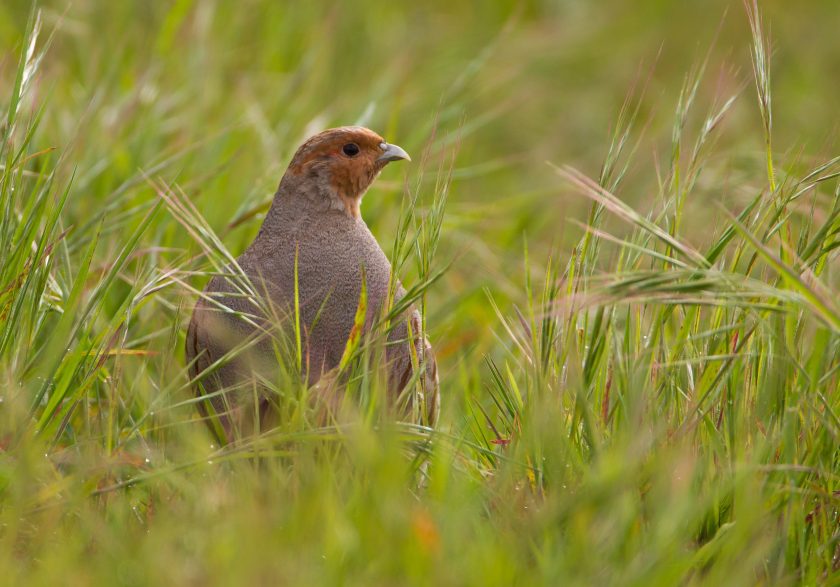
A new project consisting of Shropshire farmers will work together to achieve the recovery of some of the UK’s most threatened farmland bird species.
The Game & Wildlife Conservation Trust (GWCT) is working with a group of farmers to establish the Corvedale Farmland Wildlife Project.
They will follow the GWCT's management measures for grey partridge recovery, including habitat improvements and predation control, and apply it to other species such as curlew and lapwing.
The grey partridge is widely considered to be a barometer of farmland biodiversity: where the conditions exist for it to thrive, other wildlife will too.
Figures show that grey partridge numbers have declined across Europe by more than 90 percent since the 1970s.
In the same period, lapwing numbers have plummeted by 80% and curlew have been in long term decline, with numbers halving in the last 20 years.
The new project will put farmland conservation techniques based on the Trust’s research into practice on the ground to help reverse this.
It will also provide opportunities for participating farmers and the GWCT to share knowledge with the wider agricultural community.
Land managers, conservationists, educational groups and policy makers will be able to visit the Corvedale to see the wildlife-friendly measures in action.
Dr Roger Draycott, who is leading the group for the GWCT, said: "We hope to show that putting measures in place on a landscape-scale, rather than just individual farms, greatly increases the chance of significant bio-diversity gains.
“Ultimately we hope to develop a farmer cluster across the Corvedale, allowing the farmers to continue working together for bio-diversity gains on a landscape-scale well into the future.”
To allow it to demonstrate long-term results, the project will run for a minimum of five years with an initial group of farms.
